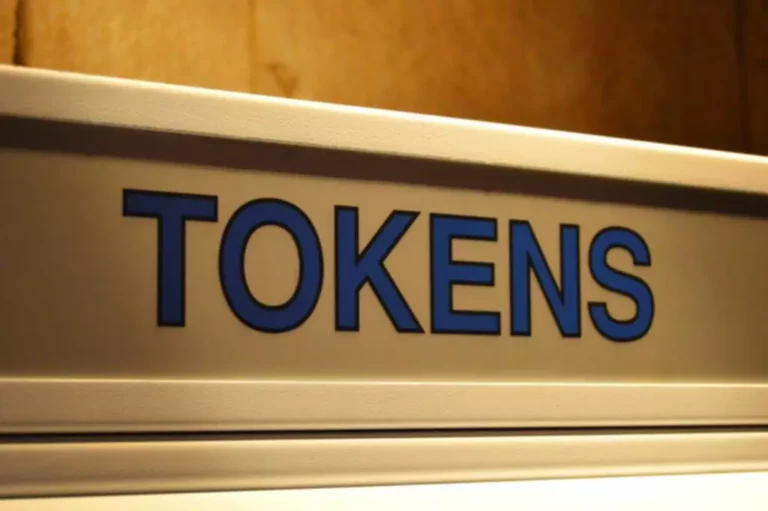Content
Smart contracts work by following simple “if/when…then…” statements that are written into code on a blockchain. A network of computers executes the actions when predetermined conditions are how do smart contracts work met and verified. Generally speaking, smart contracts have state variables (data), functions (what can be done), events (messages in and out), and modifiers (special rules for specific users). Parties can define which information is necessary to disclose for the execution of the contract, while keeping other data confidential. This allows for a greater degree of control over privacy, ensuring that sensitive or proprietary information is not exposed to unnecessary parties. For example, payment terms can be programmed into the smart contract, allowing for automatic release of funds upon meeting specific conditions.

Discover Wealth Management Solutions Near You
“Collaboration is key for smart contracts to be deployed and adopted across businesses and industries,” says Braine. Yield farming contracts allow users to earn additional rewards by providing liquidity to DeFi platforms. Users can deposit List of cryptocurrencies assets into these contracts, which are then used within protocols to generate yield. Yield farming contracts often provide rewards in the form of governance tokens or protocol-specific tokens, which incentivize users to lock assets in liquidity pools or staking contracts. This model encourages liquidity provision, enhances protocol stability, and allows users to maximize their returns within decentralized finance ecosystems.
Benefits of Smart Contracts on Blockchain
Pull down invisible barriers to growth and reinvent trade and trade finance with our network-convening expertise and the industry’s leading platform. While it’s compatible with Ethereum, it offers lower fees and better performance, making it a great choice for various projects. It’s become a popular choice for DeFi projects and tokenization due to these advantages. A simple digital value exchange — let’s imagine an employer sending some Bitcoins to an employee.A smart right and obligation contract — let’s imagine a consumer https://www.xcritical.com/ that buys a digital content stream.
The value of digital contracts: A guide to modern efficiency and security
Smart contracts provide an immutable and auditable record of all contract-related actions and transactions. This record serves as a reliable source of truth in case of disputes, as it cannot be altered or tampered with. Parties involved in the dispute can refer to the transparent and verifiable history on the blockchain, reducing the need for lengthy investigation or reliance on subjective interpretations.
Oracles can provide relevant information or parameters to validate and resolve disputes. This enables the integration of real-world data and enhances the accuracy and fairness of the resolution process. Smart contracts operate on a decentralized blockchain network, where each transaction is securely recorded and linked to the previous ones, forming a chain of blocks. Once a contract is created and executed, it becomes a part of the permanent record on the blockchain, making it virtually impossible to alter or delete without consensus from the network participants. Traditional contracts often rely on human interpretation and implementation, which can lead to errors and discrepancies. Smart contracts, being programmed with specific terms and conditions, strictly adhere to the pre-defined rules, leaving no room for misinterpretation or human error.
Similar to traditional contracts, smart contracts define rules and penalties around an agreement and automatically enforce those obligations. While they can work independently, many smart contracts can also be implemented together. Oracles on the blockchain aggregate real-world data from various sources and transfer it to smart contracts using the blockchain.
They automatically handle tasks like releasing funds, registering assets, or sending notifications once conditions are met. The blockchain’s permanence ensures transactions are visible only to authorized parties. It is like a digital agreement that runs on its own, with all the terms and conditions written directly into the code. It operates on a blockchain network, so the contract automatically carries out and enforces itself when the set conditions are met. Smart contracts can also leverage the use of oracles to include trusted external data for dispute resolution.

These actions can include transferring funds, updating records, or triggering other smart contracts. The first thing you can find in the basic traits of smart contracts is the assurance of transparency. The smart contract logic is visible to everyone in the blockchain network on which it is deployed. Therefore, all the participants in a smart contract could see the terms and conditions of the smart contract alongside the changes. The immutability of smart contracts also ensures that no one can challenge the terms of the contract after they have been deployed.
Tokenizing assets such as real estate, commodities, art, bonds, and other traditionally illiquid assets has opened new doors, allowing more efficient, secure, and transparent management of value. Clear and thorough documentation of the contract code, architecture, and functionality makes it easier for developers, auditors, and the community to understand and assess security risks. In the event of security incidents or critical updates, maintain transparent communication with the community to foster trust and ensure that users understand the measures taken. Oracle manipulation attacks exploit the reliance of smart contracts on external data sources, such as price feeds or event outcomes.
Unlike traditional contracts, once a smart contract is deployed on the blockchain, it cannot be easily altered or stopped, making it crucial to thoroughly test and audit the code before deployment. Additionally, the transparency of smart contracts can deter fraudulent activity, as every transaction is recorded and visible on the blockchain. Essentially, smart contracts serve as trusted, programmable scripts that automate the process of contract execution. The fundamentals of smart contracts, their components, working, use cases, and examples provide a clear description of their potential. You must have discovered many answers to “what are the benefits of smart contracts” by now.
- Multiple nodes confirm whether the conditions for the smart contract have been met before executing the transaction.
- This provides participants autonomy and independence, particularly in the case of DAO.
- Once transactions are processed and validated, they become part of the blockchain’s permanent record, and it’s possible to trace each transaction’s journey on-chain through a blockchain explorer.
- The use of smart contracts in the finance and banking sector has the potential to increase operational efficiency, reduce costs, and enhance security and transparency.
- Learn from the ground up what blockchain is all about and how it can benefit your organization.
- A single smart contract can have several conditions, and a single application can have several smart contracts to support an interlinked set of processes.
But it wasn’t until blockchain technology came along, especially with the launch of Ethereum in 2015, that smart contracts took off. Ethereum’s blockchain gave developers the tools to create and run code that could handle complex agreements on its own. This breakthrough led to a wave of new decentralized apps, shaking things up by automating transactions and eliminating the need for middlemen. In case of a dispute, smart contracts can incorporate predetermined conflict resolution mechanisms.
These smart contracts don’t just ‘execute’; they enforce the rules of the agreement, too. When those conditions are met, the smart contract automatically executes the corresponding contractual clause. In contrast, smart contracts leverage distributed ledger technology, working automatically to not only simplify the process and reduce the workload, but also making them safe, secure and easier to understand. This could radically change current ways of working for both businesses and customers when they enter a legal agreement.
Similarly, ISO certification indicates that a vendor is committed to environmental management. By choosing a vendor with this certification, you ensure that your digital contract processes are aligned with best practices for sustainability. This not only supports your company’s environmental goals but also enhances your brand’s reputation as a responsible business.
Nevertheless, if a digital legal contract binds an individual, it cannot be erased or redacted. ALCs operate under a governing program and are primarily tasked with managing interactions between this program and the blockchain. For instance, ALCs might facilitate the integration of Internet of Things devices with blockchain. Smart contracts have the potential to disrupt many industries including the banking sector, insurance, telecommunication, art world, music and film, education and many more.
Individuals have the same data at all times, which reduces the likelihood of contract clause exploitation. This enhances trust and safety because contract-related information is accessible throughout the duration of the contract. Users can store reputational data and digital assets on smart contracts to generate a digital identification card. When smart contracts are linked to multiple online services, other external stakeholders can learn about individuals without divulging their true identities.
